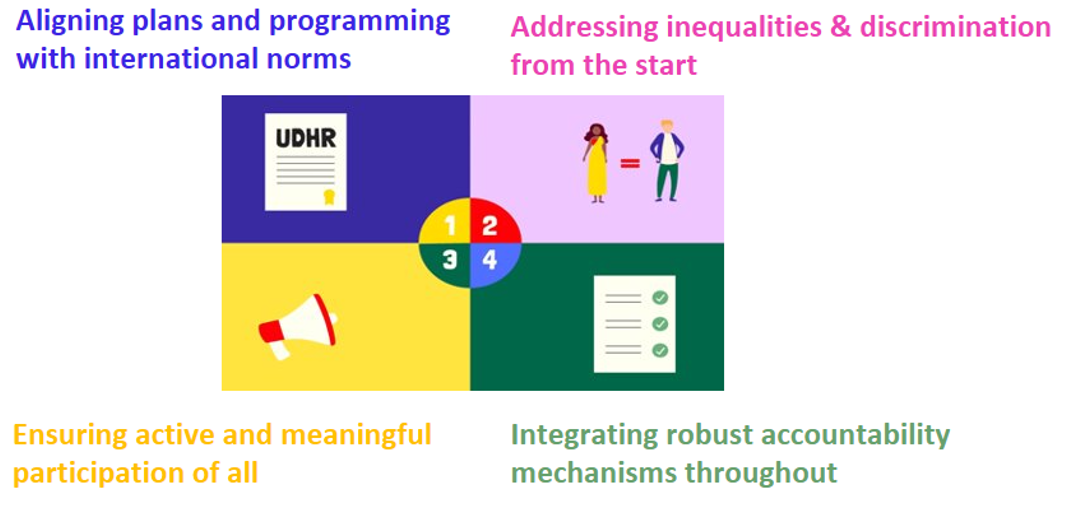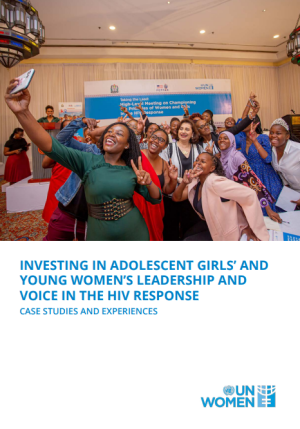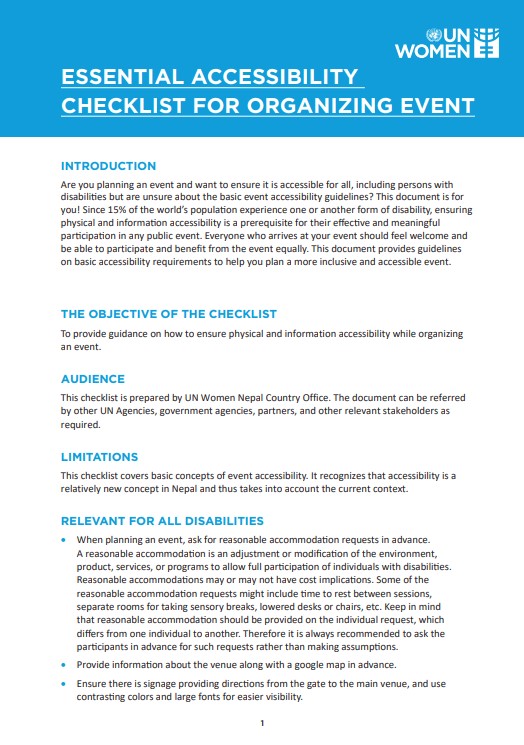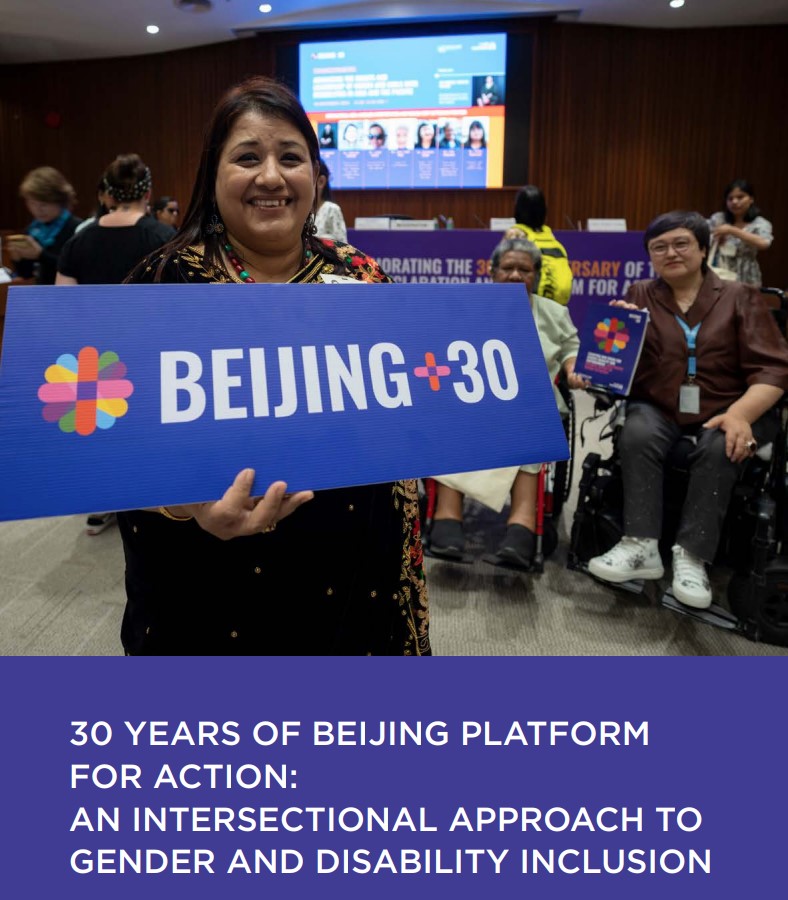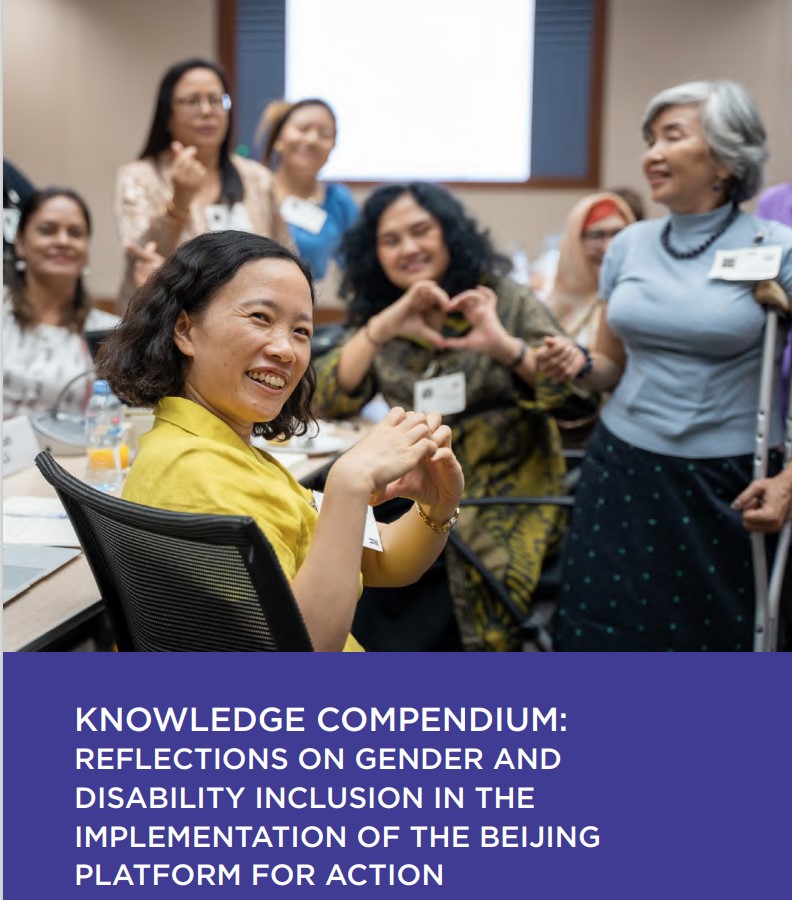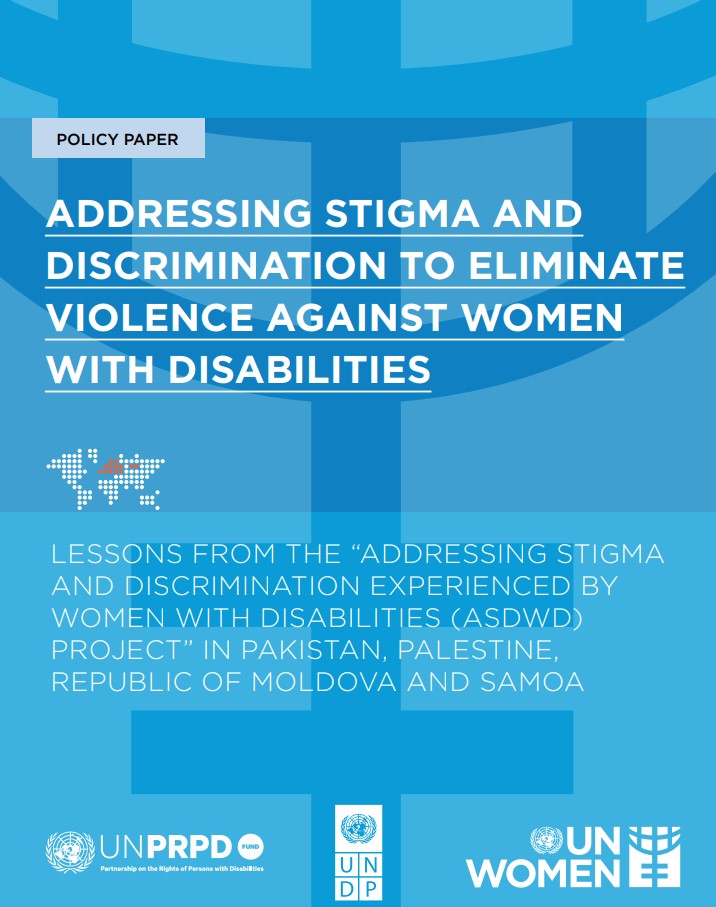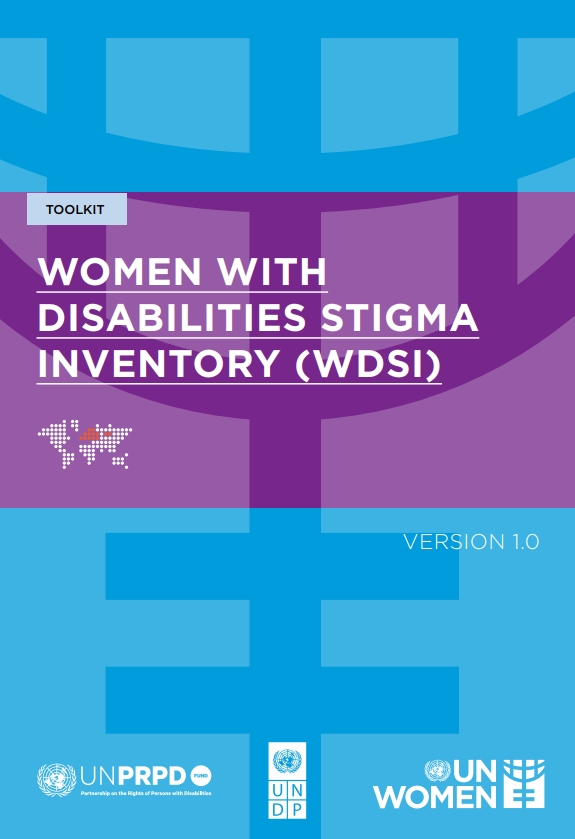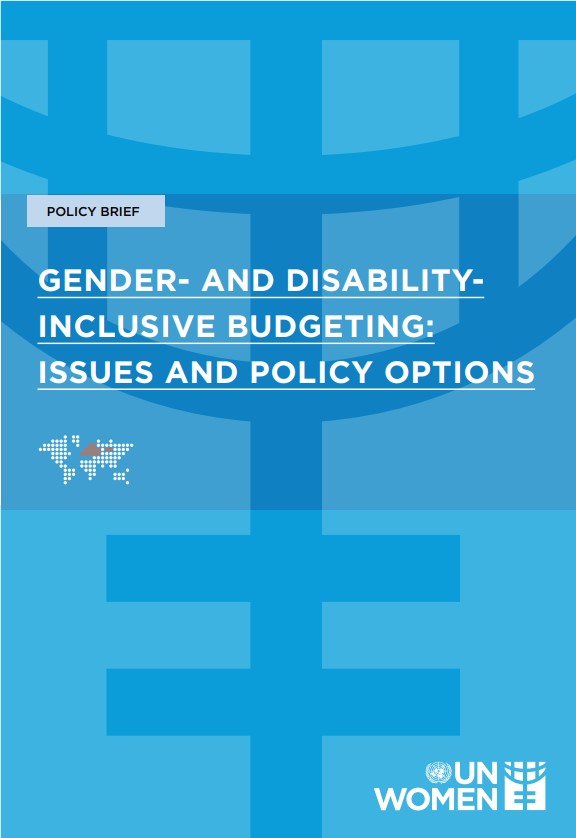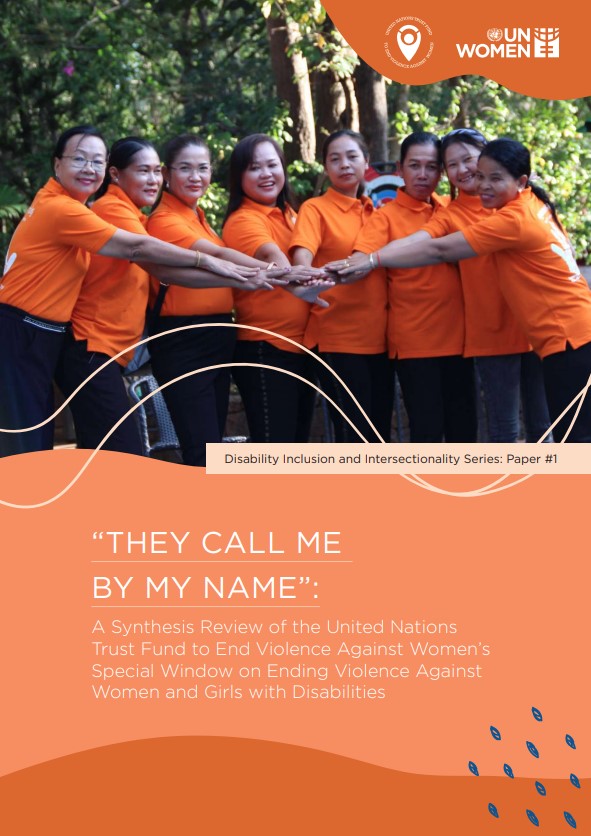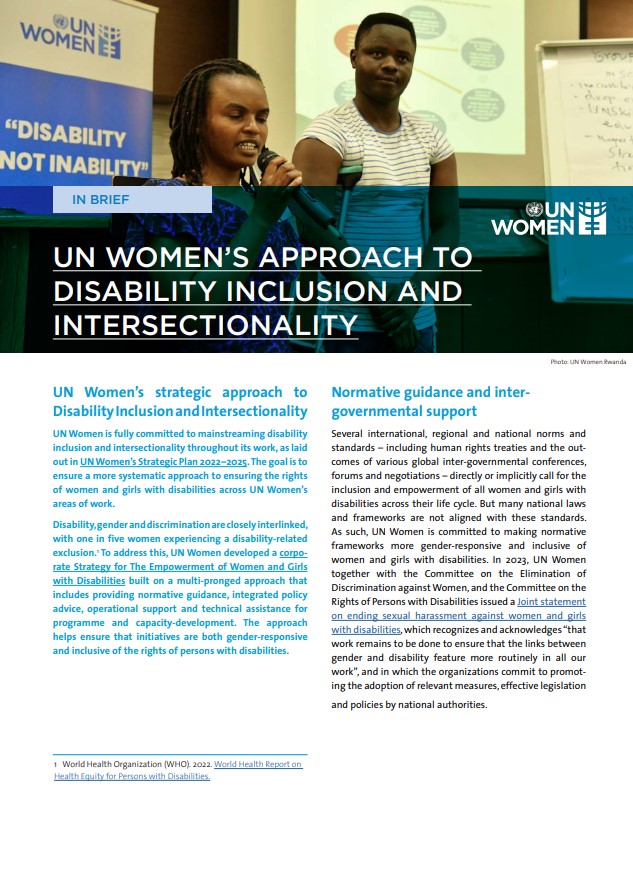In 2024, UN-Women with United Nations entities, Organisations of Persons with Disabilities, and organizations and networks of women with disabilities addressed stigma, discrimination and violence against women and girls with disabilities. UN-Women and UNDP, in collaboration with the Global Disability Fund, created a new measure, The Women with Disabilities Stigma Inventory, along with accompanying resources, to assess the experiences of women and girls with disabilities. A policy brief outlined actionable and evidence-based recommendations that were piloted in Moldova, Pakistan, Samoa and the State of Palestine. Both the methodology and the policy recommendations were informed by data from national and cross-regional assessments of stigma and non-discrimination. Women and girls with disabilities engaged in and benefited from disability-inclusive programming to end violence against women through 62 projects supported by the United Nations Trust Fund. To connect disability inclusion, with the SDGs and its core leave no one behind principle, UN-Women joined the International Organization of Supreme Audit Institutions’ Development Initiative to devise an auditing framework to address inequalities. UN-Women and the World Health Organization supported the strengthening of methodologies and the measurement of data on violence against women with disabilities, including through developing national capacities.
-
ResultsCountry results
- Afghanistan
- Albania
- Argentina
- Bangladesh
- Bolivia
- Bosnia and Herzegovina
- Brazil
- Burundi
- Cameroon
- Central African Republic
- China
- Colombia
- Côte d'Ivoire
- Democratic Republic of the Congo
- Ecuador
- Egypt
- El Salvador
- Ethiopia
- Georgia
- Guatemala
- Haiti
- India
- Indonesia
- Iraq
- Jordan
- Kazakhstan
- Kenya
- Kyrgyzstan
- Lebanon
- Liberia
- Malawi
- Mali
- Mexico
- Moldova
- Morocco
- Mozambique
- Myanmar
- Nepal
- Niger
- Nigeria
- Occupied Palestinian Territory
- Pakistan
- Papua New Guinea
- Rwanda
- Senegal
- Sierra Leone
- Somalia
- South Sudan
- Sudan
- Tanzania
- Thailand
- Timor-Leste
- Tunisia
- Türkiye
- Uganda
- Ukraine
- Viet Nam
- Zimbabwe
-
Partners
-
2030 Agenda
Main navigation Mobile
-
Results
-
Global results
- Overview
- Key results
- Impact areas
- Systemic outcomes
- Organizational outputs
- Resources
- Regional results
-
Global results
- Partners
- 2030 Agenda
- Country results
Country results
- Afghanistan
- Albania
- Argentina
- Bangladesh
- Bolivia
- Bosnia and Herzegovina
- Brazil
- Burundi
- Cameroon
- Central African Republic
- China
- Colombia
- Côte d'Ivoire
- Democratic Republic of the Congo
- Ecuador
- Egypt
- El Salvador
- Ethiopia
- Georgia
- Guatemala
- Haiti
- India
- Indonesia
- Iraq
- Jordan
- Kazakhstan
- Kenya
- Kyrgyzstan
- Lebanon
- Liberia
- Malawi
- Mali
- Mexico
- Moldova
- Morocco
- Mozambique
- Myanmar
- Nepal
- Niger
- Nigeria
- Occupied Palestinian Territory
- Pakistan
- Papua New Guinea
- Rwanda
- Senegal
- Sierra Leone
- Somalia
- South Sudan
- Sudan
- Tanzania
- Thailand
- Timor-Leste
- Tunisia
- Türkiye
- Uganda
- Ukraine
- Viet Nam
- Zimbabwe
Main navigation Mobile Sub
User guide
Back to top

